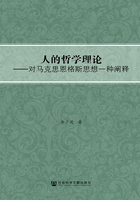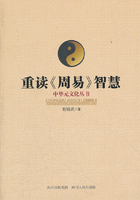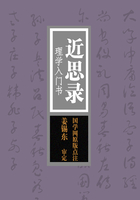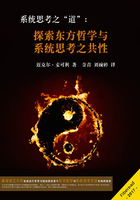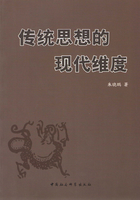本书以“自由”“平等”和“所有权”为主线,旨在阐释、比较、分析马克思、科恩分别完成对新、旧自由主义和资本主义非正义的批驳,而后各自构建其社会主义正义论。其中,重点阐明分析马克思主义的主要创立者、当代世界著名左翼政治哲学家、英国牛津大学教授G.A.科恩立足于当代现实,大胆质疑马克思主义自我所有、剥削等理论,同时发展马克思正义思想;回应当代自由主义(新自由主义)的挑战,批判并吸纳当代自由主义的合理资源,探索社会主义基本正义。
为了达致上述目的,本书主要从以下几个章节展开:
第一章,探究马克思、科恩对自由主义批判的缘起。厘清“自由主义”的发展脉络与基本特征,同时探明(新、旧)自由主义如何运用“自由、平等与自我所有”三位一体正义学说为资产阶级私有制辩护,激起了马克思与科恩对之的强烈批驳。马克思批判自由主义正义论的缘由在于:他吸纳了与现代正义相悖的古希腊正义思想中的“共同体”“共享”“友爱”等理念;自由主义正义论乃资产阶级意识形态的核心;他要同庸俗社会主义划清界限,使无产阶级革命斗争和社会主义运动能够沿着科学的轨道前进,更好地阐述马克思主义社会正义论。科恩批判自由主义的原因有:罗尔斯对马克思批驳自由主义的回应和对马克思“正义难题”的应答;资本主义的新变化,造成“马克思主义的危机”;诺齐克为自由主义正义的辩护、对社会主义正义的攻击;当代“运气均等主义流派”的兴起等。
第二章,探析马克思对自由主义的批判。探研马克思吸收、借鉴古希腊整体正义思想,围绕“自由”“平等”与“所有权”对自由主义正义论完成的哲学批判、政治学批判和经济学批判。首先探究马克思对自由主义“自由”的批判、对自由主义“平等”的批判、对自由主义“所有权”的批判;其次探明马克思对自由主义正义论的政治学批判,其中重点探讨马克思对自由主义者黑格尔政治哲学的批判和超越:提出“市民社会决定政治国家”、揭露市民和公民的分离、披露黑格尔“等级制”引发“虚幻共同体”、阐明黑格尔“需要体系”走向“物的异化”和“货币共同体”等、构筑“自由人的联合体”;最后探研马克思对古典经济学“自由”的批判、对古典经济学“平等”的反驳、对古典经济学“所有权”的批判。
第三章,探研科恩对新自由主义的批判。该部分为本书的主要内容,因为在当代西方政治哲学中,反驳马克思“正义难题”成为学界热议的话题。因而探讨科恩发展马克思的正义思想,回应自由主义的挑战,主要围绕“自由”“自我所有”和“平等”三个维度对自由主义完成的批判,成为当前学界探讨的重点话题。本章首先探讨科恩批判自由主义者弗洛、纳维森的自由观,澄清“道德中立的自由”和“道德化的自由”,同时揭示私有财产权和自由之间的复杂关系;而后重点阐述科恩批判左翼自由主义者罗尔斯为资本主义不平等的正当性所做的三个证明:激励论证、帕累托论证和道德任意性主张;最后展示科恩运用层层推进的方法对诺齐克自我所有的批驳:甄别诺齐克的自我所有权、自我所有原则和自我所有论,反驳诺齐克自我所有论的两大前提,反驳自我所有与平等之间存在矛盾的论断,反驳自我所有论本身。在对自由主义批判过程中,科恩捍卫了社会主义的正当性。
第四章,分析马克思、科恩对未来正义社会的建构。探讨马克思扬弃古希腊整体正义、现代个体正义,而后构建其宏大的社会正义论:经济正义、狭义社会正义、政治正义、文化正义以及生态正义。再探究科恩质疑马克思实现平等的条件、自我所有理论及剥削理论,同时坚信马克思的平等精神,拯救和超越自由主义的平等理论,反思多种典型的社会主义建设模式,整合当代各种运气均等主义平等观的合理资源,探索和建构未来社会正义:设想一种自由与公有化规则共存的模式、倡导一种自主权与共用资源的平等分配方式、提出一种“可得优势之平等”理念、归纳社会主义正义两项原则:平等原则和共享原则、高扬一种渗透到个人日常生活领域的正义道德风尚。
第五章,简评马克思、科恩正义思想。首先探究两种正义思想的相同点:对自由主义三位一体正义学说的反驳;对社会主义正义的辩护;对未来社会正义的构建;对剥削的本质、前提的阐释;对公有制或公用资源的坚持等。其次探讨两种正义的相异点:理论渊源的差别、研究重心的差别、研究方法的差别。最后探研两种正义的启示:有利于立足于马克思主义的经典文本、契合当代现实,实现对马克思主义基本理论的传承和发展;有利于辩证研究西方马克思主义各流派,吸纳其积极因素,抛弃其消极方面;有利于研究、反驳自由主义的新发展。
关键词:自由、平等、所有权、正义、运气均等主义
Abstract
The mainlines of this book are“freedom”,“equality”and“ownership”,and aims to demonstrate,compare and analyze the refutation of the new and old liberalism and capitalist injustice respectively completed by Marx and Cohen,and then to construct their own socialist justice.G.A.Cohen,the main founder of Marxism,a famous left-wing political philosopher and professor of the Oxford University in the U.K.,based on contemporary reality,boldly questioned the Marxist theory of self-ownership and exploitation,while developed Marxist justice; Responded to the challenges to contemporary liberalism(neo-liberalism),criticized and absorbed contemporary rational resources of liberalism and explored the basic justice of socialism.These are the key points of this book.
In order to achieve the above objectives,this book is mainly constituted by the following sections.
The first chapter explores the origins of Marx's and Cohen's critique of liberalism.At the beginning,it clarifies the development and basic features of“liberalism”,and at the same time proves that(new and old)liberalism used the theory of“Trinity of Justice of Freedom,Equality and Self-Ownership”to justify the private ownership of bourgeoisie that aroused the strong refutation from Marx and Cohen.The reason why Marx criticized the theory of liberal justice is that he absorbed the idea of“community,sharing,fraternity”in ancient Greek justice,which is contrary to modern justice; liberalism justice is the core of bourgeois ideology; Marx had to draw a clear line with vulgar socilaists so that the proletarian revolutionary struggle and the socialist movement can advance along the scientific track and explained the Marxist theory of social justice in a better way.Cohen's critique of liberalism is the result of Rawls's response to Marx's refutation of liberalism and his response to Marx's“justice puzzle”; the new changes in capitalism that resulted in“the crisis of Marxism”; as the liberal justice defender,Nozick attacked on socialist justice; the rise of contemporary“luck equalitarianism”and so on.
The second chapter explores Marx's criticism of liberalism,studies and probes that Marx absorbed and borrowed the thought of holistic justice in ancient Greek,and completed philosophical criticism,political criticism and economic criticism about liberalism justice,with freedom,equality and ownership.First,it explores Marx's critique of liberalism“freedom”,“equality”and“ownership”.Second,it explores Marx's political critique of liberal theory of justice,which focuses on Marx's critique and transcendence of Hegel's political philosophy: came up with“Civil Society Decides the Political State”,exposed the separation between citizens and civics and Hegel's“Hierarchy”triggered“illusory community”,clarified Hegel's“need system”to“alienation of things”and“monetary community”,then build a“free man's union”.In the end,the author analyzes Marx's criticism of“freedom”of classical economics,the refutation of“equality”of classical economics,and the criticism of“ownership”of classical economics.
The third chapter explores Cohen's criticism of liberalism.In contemporary western political philosophy,refuting Marx's“justice puzzle”has become a hot topic in academic circles,so the exploration of this part is the main content of this book.Therefore,it is a key topic to discuss Cohen's development of Marx's justice and his response to the challenge of liberalism.Besides,Cohen's critique of liberalism is mainly centered on the three dimensions of freedom,self-ownership and equality.In this chapter,firstly,the author discusses Cohen's critique of Freud's and Navisen's views on Freedom,and his clarification on the“freedom of moral neutrality”and“moral freedom”,while revealing the complex relationship between private property and liberty.Then,focusing on three evidences of Cohen's critique of Rawls for the legitimacy of capitalist inequality:the incentives argument,the Pareto argument and the moral arbitrariness claim.Lastly,showing Cohen's refutation on the Nozick's self-ownership: The screening of Nozick's self-ownership,self-all principle and self-ownership theory,refutation of the two prerequisites of Nozick's theory of self-ownership and of the judgment of the contradiction between self-ownership and equality and of the theory of self-ownership itself.In the process of criticizing liberalism,Cohen defended the legitimacy of socialism.
The fourth chapter analyzes Marx's and Cohen's construction of future social justice.The author discusses Marx's sublation of ancient Greek holistic justice and modern individual justice,and then constructed his ambitious social justice theory: economic justice,social justice in the narrow sense,political justice,cultural justice and ecological justice.And then inquires into Cohen's questioning of Marx's conditions of equality,theory of self-ownership and exploitation.He also believed Marx's spirit of equality,realized the salvation and transcendence of liberal theory of equality,reflections on various typical socialist construction modes and integration of the reasonable resources of contemporary a variety of luck equalitarian equality view.To explore and construct the social justice in the future: to envisage a model of coexistence of free and publicized rules,to advocate an equal distribution of autonomy and common resources,to propose the idea of“equal access to advantage”,to conclude the principles of socialist justice: the principle of equality and the principle of sharing,to uphold the justice moral fashion into the field of personal daily life.
Chapter Five briefly reviews Marx's and Cohen's justice thoughts.First of all,the similarities of two kinds of justice thoughts are discussed: the refutation of liberal Trinity justice theory,the defense of socialist justice,the construction of social justice in the future,the explanation of the nature and precondition of exploitation,the persistence of public ownership or public resources.Secondly,it discusses the differences of two kinds of justice: the difference of theoretical origin,the difference of research center and the difference of research method.Finally,it explores the revelation of two kinds of justice: it is conducive to conform to the contemporary reality and realizes the inheritance and development of the basic theory of Marxism,which is based on the classical text of Marxism; it is conducive to conduct the dialectical study of Western Marxist schools,absorbing the positive factors and abandoning the negative aspects;it is conducive to research,refute the new development of liberalism.
Keywords:Freedom,Equality,Ownership,Justice,Luck egalitarianism

